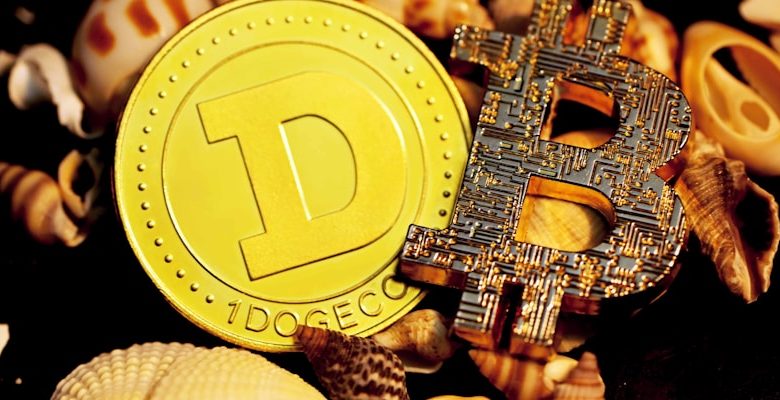The Rise of Decentralized Exchanges in the DeFi Ecosystem

- Understanding Decentralized Exchanges (DEX) in DeFi
- The Evolution of DEX Platforms in the DeFi Space
- Challenges and Opportunities for Decentralized Exchanges
- Regulatory Outlook for Decentralized Exchanges
- The Impact of Decentralized Exchanges on Traditional Finance
- Innovations Driving the Growth of Decentralized Exchanges
Understanding Decentralized Exchanges (DEX) in DeFi
Decentralized exchanges (DEX) are a crucial component of the rapidly expanding decentralized finance (DeFi) ecosystem. Unlike centralized exchanges, DEX operates without a central authority, allowing users to trade directly with one another using smart contracts on the blockchain. This peer-to-peer trading model offers increased security, privacy, and control over assets compared to traditional exchanges.
One of the key benefits of decentralized exchanges is the elimination of the need for intermediaries, such as a centralized exchange platform, to facilitate trades. This not only reduces the risk of hacks and fraud but also minimizes the chances of downtime or service disruptions. Additionally, DEX often have lower fees compared to their centralized counterparts, making them an attractive option for traders looking to maximize their returns.
Another significant advantage of DEX is the ability to maintain custody of one’s assets throughout the trading process. Users do not have to deposit their funds into a centralized exchange wallet, reducing the risk of losing control over their assets in the event of a security breach. This increased security and autonomy have made DEX a popular choice among users who prioritize the protection of their digital assets.
Furthermore, decentralized exchanges are non-custodial, meaning users retain ownership of their private keys and have full control over their funds at all times. This aligns with the core principles of blockchain technology, which emphasize decentralization, transparency, and security. By leveraging smart contracts and blockchain technology, DEX provides a trustless and efficient trading environment for users seeking a more secure and decentralized alternative to traditional exchanges.
In conclusion, decentralized exchanges play a vital role in the DeFi ecosystem by offering users a secure, transparent, and efficient way to trade digital assets without relying on centralized intermediaries. With the growing interest in DeFi and the increasing demand for decentralized solutions, DEX are poised to continue their rise as a cornerstone of the decentralized financial landscape.
The Evolution of DEX Platforms in the DeFi Space
The evolution of decentralized exchanges (DEX) within the DeFi space has been a notable trend in recent years. DEX platforms have gained significant traction as they offer users a way to trade cryptocurrencies without the need for a centralized intermediary. This shift towards decentralized trading has been driven by the desire for increased security, privacy, and control over one’s assets.
One of the key developments in the evolution of DEX platforms has been the rise of automated market makers (AMMs). AMMs use smart contracts to facilitate trades directly between users, eliminating the need for order books and traditional liquidity providers. This innovation has democratized access to liquidity and enabled a more efficient trading experience for users.
Another important aspect of the evolution of DEX platforms is the integration of decentralized finance (DeFi) protocols. By leveraging DeFi protocols such as lending, borrowing, and yield farming, DEX platforms have expanded their functionality beyond simple token swaps. This integration has created new opportunities for users to earn passive income and participate in a wide range of financial activities.
Furthermore, the development of cross-chain interoperability solutions has played a crucial role in the evolution of DEX platforms. By enabling users to trade assets across different blockchains seamlessly, these solutions have increased the liquidity and accessibility of DEX platforms. This interoperability has opened up new opportunities for users to access a diverse range of assets and investment opportunities.
Overall, the evolution of DEX platforms in the DeFi space has been marked by innovation, collaboration, and user-centric design. As these platforms continue to evolve, they are likely to play an increasingly important role in shaping the future of decentralized finance and revolutionizing the way we trade and interact with digital assets.
Challenges and Opportunities for Decentralized Exchanges
Decentralized exchanges (DEXs) offer a promising alternative to traditional centralized exchanges in the rapidly growing decentralized finance (DeFi) ecosystem. However, they also face several challenges that need to be addressed for widespread adoption and scalability. At the same time, these challenges present unique opportunities for innovation and growth within the DeFi space.
One of the main challenges for decentralized exchanges is liquidity. Unlike centralized exchanges that often have large pools of liquidity due to market-making activities, DEXs rely on individual users to provide liquidity through decentralized protocols like automated market makers (AMMs). This can lead to issues such as slippage and low trading volumes, which can deter traders from using DEXs.
Another challenge for DEXs is user experience. Many decentralized exchanges are still in the early stages of development and may lack the user-friendly interfaces and features that traders are accustomed to on centralized platforms. Improving the user experience on DEXs will be crucial for attracting a broader audience and driving adoption.
On the other hand, these challenges also present opportunities for innovation within the DeFi ecosystem. For example, projects are working on solutions to improve liquidity on decentralized exchanges, such as cross-chain interoperability and layer 2 scaling solutions. By addressing these challenges, DEXs can unlock new possibilities for decentralized trading and financial services.
Overall, the challenges and opportunities for decentralized exchanges highlight the potential for growth and innovation in the DeFi ecosystem. By addressing issues such as liquidity and user experience, DEXs can play a key role in reshaping the future of finance.
Regulatory Outlook for Decentralized Exchanges
When it comes to the regulatory outlook for decentralized exchanges (DEXs), there are a number of factors that need to be considered. DEXs operate in a decentralized manner, meaning that there is no central authority governing their operations. This lack of centralization can make it difficult for regulators to enforce compliance with existing laws and regulations.
However, as DEXs continue to gain popularity in the DeFi ecosystem, regulators around the world are starting to take notice. Some jurisdictions have already begun to implement regulations specifically targeting DEXs, while others are still in the process of determining how best to regulate these platforms.
One of the main concerns that regulators have with DEXs is the potential for money laundering and other illicit activities. Because DEXs allow users to trade cryptocurrencies without going through a centralized exchange, it can be easier for bad actors to engage in illegal activities without detection.
Another issue that regulators are grappling with is how to ensure that DEXs comply with know-your-customer (KYC) and anti-money laundering (AML) regulations. These regulations are designed to prevent financial crimes such as money laundering and terrorist financing, but they can be difficult to enforce on decentralized platforms.
Overall, the regulatory outlook for DEXs is still uncertain. While some jurisdictions are taking a proactive approach to regulating these platforms, others are still trying to determine the best course of action. As the DeFi ecosystem continues to evolve, it will be important for regulators to strike a balance between fostering innovation and protecting consumers and investors.
The Impact of Decentralized Exchanges on Traditional Finance
Decentralized exchanges (DEXs) are revolutionizing the way we think about traditional finance. These platforms allow users to trade cryptocurrencies directly with one another, without the need for a centralized authority. This has significant implications for the financial industry, as it reduces the reliance on intermediaries and opens up new possibilities for peer-to-peer transactions.
One of the key impacts of decentralized exchanges on traditional finance is the increased level of security they provide. By removing the need for a central authority to hold users’ funds, DEXs eliminate the risk of hacks and other security breaches that are common on centralized exchanges. This can help to build trust among users and attract more people to the world of decentralized finance.
Furthermore, decentralized exchanges offer greater privacy for users, as they do not require personal information to be shared in order to trade. This aligns with the core principles of cryptocurrency, which emphasize anonymity and autonomy. As a result, DEXs are appealing to those who value their privacy and want to maintain control over their financial transactions.
Innovations Driving the Growth of Decentralized Exchanges
Innovations have played a crucial role in driving the growth of decentralized exchanges (DEX) within the DeFi ecosystem. These advancements have transformed the way users interact with digital assets, providing increased security, transparency, and efficiency.
One of the key innovations that have propelled the rise of DEX is the implementation of automated market makers (AMM). AMM algorithms allow for decentralized token swaps without the need for traditional order books, enabling continuous liquidity and reducing the impact of price slippage.
Furthermore, the integration of smart contracts has revolutionized the way trades are executed on DEX platforms. Smart contracts facilitate peer-to-peer transactions by automating the process of matching buy and sell orders, eliminating the need for intermediaries and reducing trading fees.
Another significant innovation driving the growth of DEX is the introduction of decentralized governance mechanisms. Through decentralized autonomous organizations (DAOs), users can participate in the decision-making process regarding platform upgrades, fee structures, and asset listings, fostering a sense of community ownership and engagement.
In addition, the development of cross-chain interoperability solutions has further expanded the reach of decentralized exchanges. By allowing users to trade assets across different blockchain networks seamlessly, interoperability innovations have enhanced the overall liquidity and accessibility of DEX platforms.
Overall, these innovations have not only propelled the growth of decentralized exchanges but have also paved the way for a more inclusive and democratic financial ecosystem. As the DeFi space continues to evolve, we can expect to see further advancements that will drive the adoption and mainstream acceptance of decentralized exchanges in the future.


